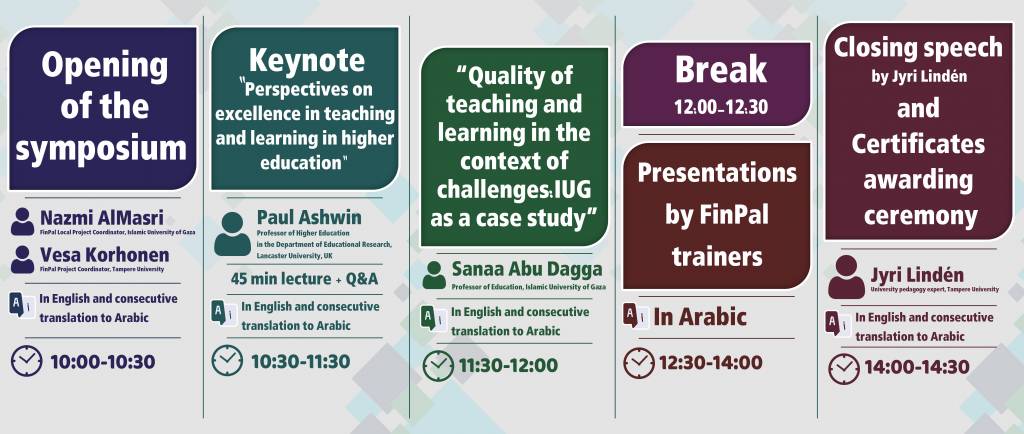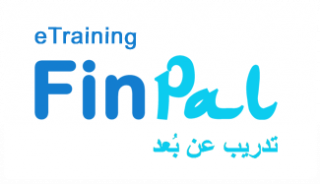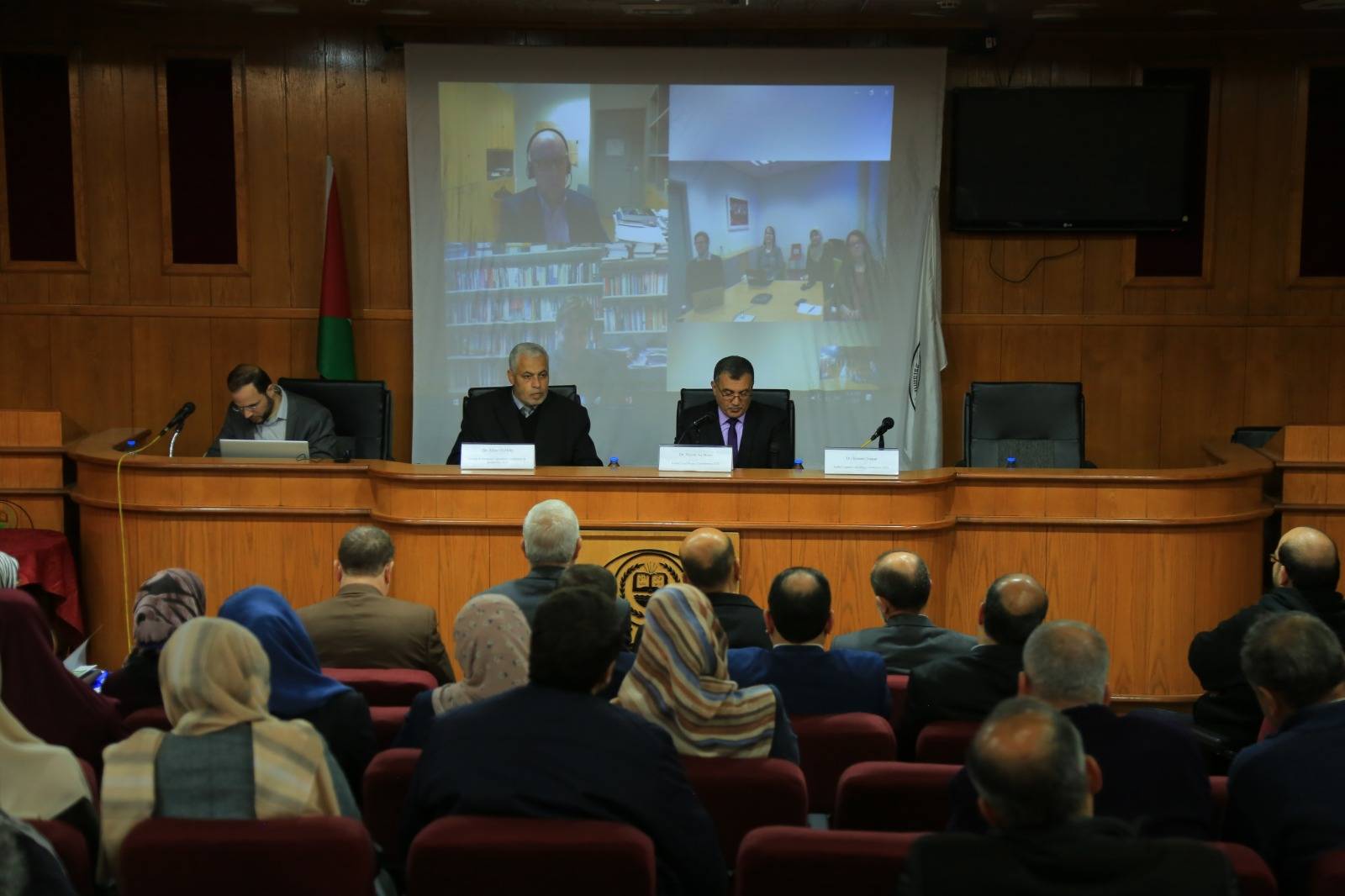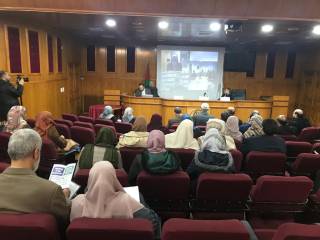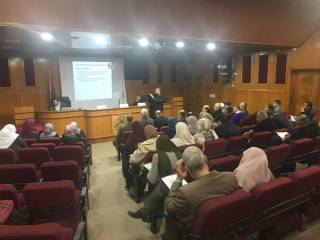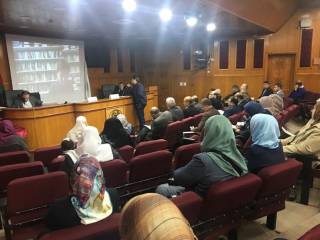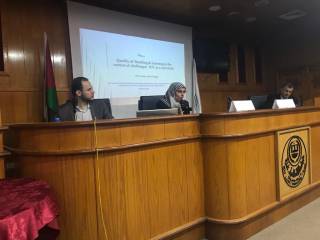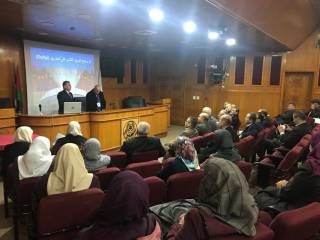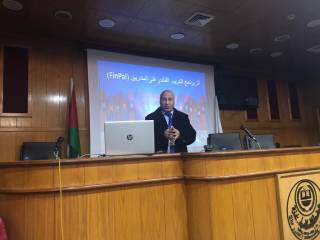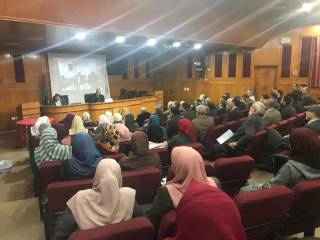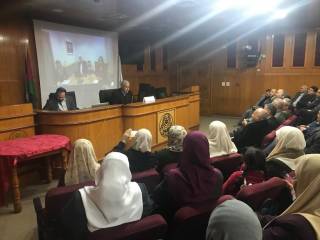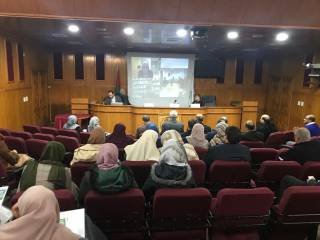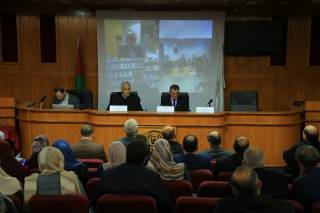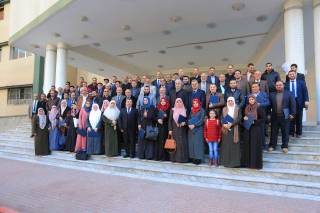The IUG’s Academic Excellence Unit organised a second International Symposium on 3 March 2020 as a part of the eTraining FinPal project. The symposium focused on different perspectives on excellence in teaching and learning in higher education. Tampere University team and the keynote speaker Paul Ashwin joined the symposium via online-conference connection. The speeches in English were consecutively translated to Arabic.
In his opening speech, Dr Vesa Korhonen, Project Coordinator and Research Director at Tampere University, welcomed the audience to the symposium that crowns a successful implementation of three rounds of pedagogical training for more than 100 Palestinian academics. The training included four themes: (1) Student learning and engagement, (2) Designing learning processes and environments, (3) Special features of teaching in university, (4) Expertise in academic teaching in higher education. Addressing the importance of critical reflective teaching, Dr Korhonen emphasised the role of community in developing pedagogical expertise in academic teaching. He concluded with an old African proverb: “If you want to go fast, go alone. If you want to go far, go together.”
Dr Nazmi Al-Masri, Local Project Coordinator, outlined the main outcomes of the Finnish-Palestinian cooperation that succeeded to overcome numerous challenges and develop relevant pedagogical competences of university teachers in Gaza Strip. The symposium day celebrates the achievements of the FinPal partnership, Dr Al-Masri concluded.
The keynote of the symposium was given by Paul Ashwin, Professor of Higher Education in the Department of Educational Research at Lancaster University, UK. Prof Ashwin spoke about excellence in academic teaching from a perspective of five myths that describe the way excellence is usually seen. The five myths are often supported by the way we talk about teaching excellence: “Excellent teaching is a spontaneous, individual activity that is largely about inspirational performance”, “Excellent teachers are always good, whilst the old-fashioned never change”, “Innovative methods are at the core of teaching excellence”, “Students are conservative and likely to be critical of innovative teaching even if it is excellent” and “Teaching excellence can easily be captured through metrics”. Prof Ashwin offered an alternative perspective on excellent university teaching by focusing on creating relations between the knowledge, students and worldviews; university education should be a transformative experience for the students.
The second speech was given by Sanaa Abu Dagga, Professor of Education at the Islamic University of Gaza who discussed the quality of teaching and learning in the context of challenges with the IUG as a case study. She reflected on IUG’s institutional initiatives to support development of teaching and learning practices in the context of political and economic challenges in the occupied Palestinian Territories. Challenges are many, Prof Abu Dagga noted, but the initiatives like FinPal show that there is willingness and commitment to improve teaching in Palestinian universities.
The speeches in English were followed by a session in Arabic that included presentations by FinPal pedagogical trainers who shared their experiences and reflections on the two training programmes organised locally at IUG.
In the last session, Jyri Lindén, University Pedagogy Expert and University Lecturer at Tampere University, congratulated the training participants on a successful completion of the FinPal training. He commended the resilience and commitment of the Palestinian academics who participated in the training and thanked the IUG project team on a successfully organised training programme.
The closing speech by Dr Alyan Al-Holy, Vice President for Academic Affairs at IUG, presented the activities and future plans of the Academic Excellence Unit. The Unit will continue to support the pedagogical development of Palestinian academics by organising pedagogical training for IUG teaching staff as well as for staff of other Palestinian universities.
The symposium gathered around 100 participants – IUG staff and students, the training participants as well as the representatives of other higher education institutions in Gaza Strip. During the open discussion that followed the speeches, the symposium participants raised interesting questions and comments related to excellence in academic teaching. The symposium was concluded with a ceremony of awarding the certificates to the participants of the two local pedagogical training programmes.
Video report on the Second International Symposium at IUG (in Arabic)
The Second International Symposium at IUG 3.3.2020
